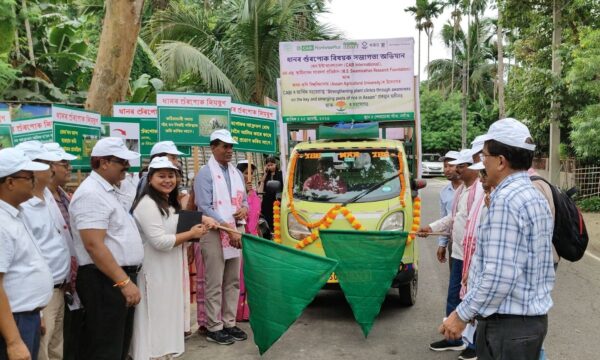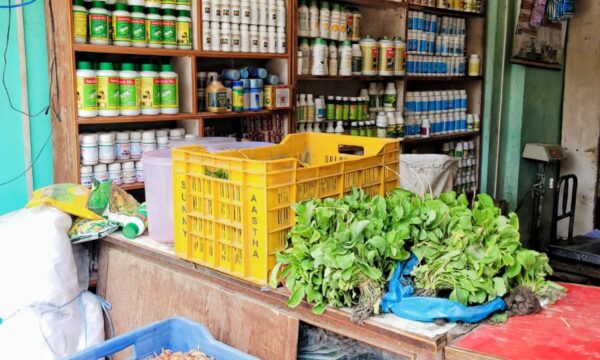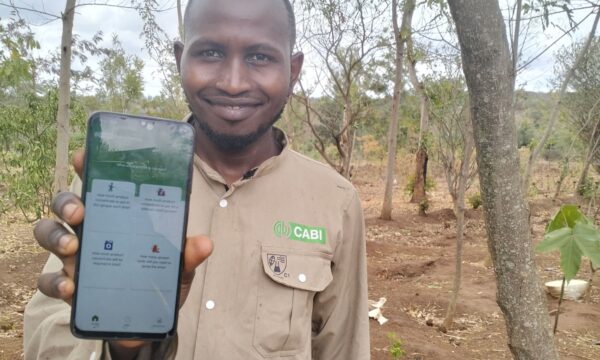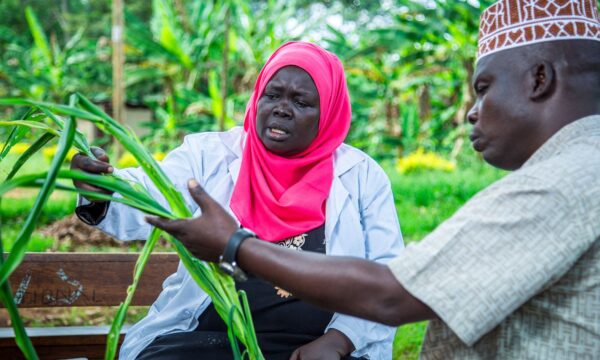In a world where digital solutions are rapidly transforming agriculture, too many women, especially in rural areas, remain on the periphery of this revolution. This was evident during the promotion of CABI digital tools in Nepal, where we noticed that many smallholder farmers, particularly women, lacked the digital skills needed to access and use information on smartphones.
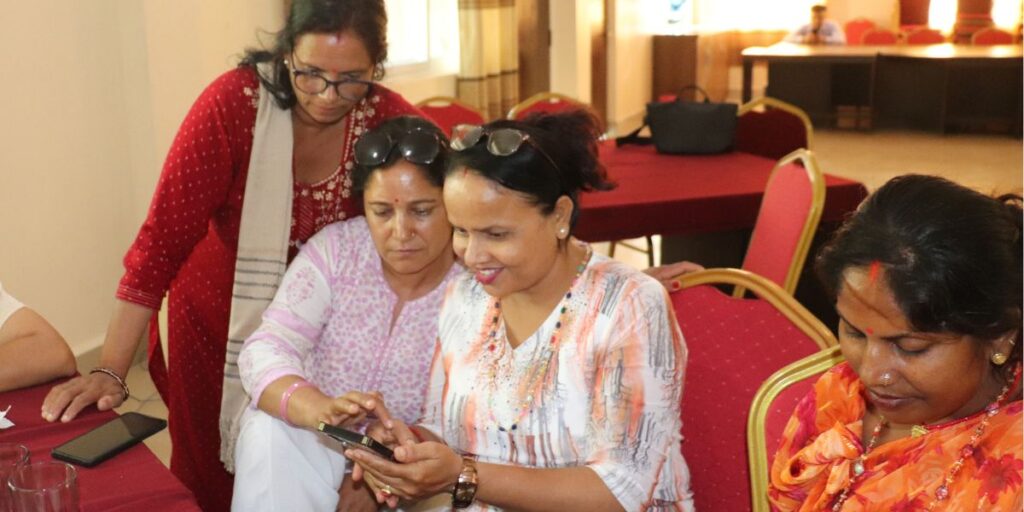
To address this, CABI launched an initiative to train women IPM facilitators, empowering them with digital skills to better support and reach numerous smallholder farmers, especially women across Nepal, so that they can access information given by PlantwisePlus digital tools more confidently
Last month, a two-day Digital Skills Training was organized by CABI, under the PlantwisePlus Programme. Held on 8–9 July 2025 in Chitwan, the training brought together women IPM facilitators and IPM farmer plant doctors from across the country. It aimed to build confidence in harnessing digital advisory platforms and bridge the gender digital divide to reach many smallholder farmers in the country. This training didn’t just deliver skills; it ignited a movement.
For many, this was the first structured opportunity to interact with smartphones beyond basic use, and to experience tools designed specifically for agricultural learning and support. From learning the basics of smartphones to exploring CABI’s suite of digital tools, including PlantwisePlus Factsheets app, CABI BioProtection Portal, Crop Sprayer App, PlantwisePlus Knowledge Bank, and the CABI Academy, participants engaged in hands-on sessions.
As they built foundational digital skills, such as safe internet practices, setting secure passwords, and assessing online content, they also unpacked the deeper challenges women face in going digital. Cultural norms, limited infrastructure, language barriers, and financial constraints surfaced as recurring obstacles, but so did the possibilities.
“This training made us realize that digital literacy isn’t a luxury; it’s a right,” shared one participant from Koshi Province.
A call to action
The sessions didn’t stop at knowledge but also empowered participants to lead change. Through small-group action planning, every participant left with a clear plan: to reach at least 1,000 more women farmers and IPM facilitators collectively across their provinces (Gandaki, Koshi, Bagamati, and Madhesh) by November 2025. Through province-level focal persons and follow-up mechanisms, including monthly virtual meetings and endline evaluations, this initiative is set to multiply its impact.
Perhaps most importantly, the workshop highlighted that meaningful inclusion requires more than technology; it requires empathy, localization, and community trust. Suggestions like incorporating more Nepali-language content, using local land measurement units (Kathha/Ropani) and demanding similar refresher trainings to reinforce learning reflected how deeply participants engaged with the tools and the initiative.
As certificates were handed out, what lingered wasn’t just pride, it was purpose. The seeds of digital transformation were planted, and with ongoing support, mentoring, and localized innovation, they’re sure to flourish.
This training marks more than an event; it’s a hopeful milestone toward inclusive digital agriculture, where women learn, lead, and share, ensuring that no one is left behind in Nepal’s agri-digital journey.
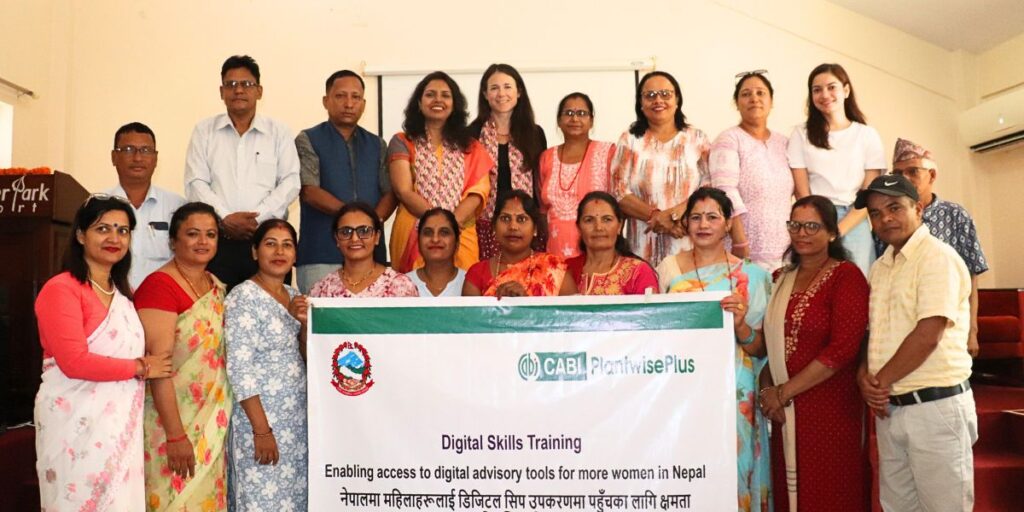
The power of women’s digital literacy
“In a world where women farmers are disadvantaged in access to advice, resulting in 20-30% smaller crop yields than men, this workshop was an important step in CABI directly addressing the gender digital divide,” explained Katherine Cameron, Head of Digital Advisory Tools.
“The digital literacy training, developed by the CABI Academy, improves participants’ abilities across a range of competencies within the UNESCO global framework on digital literacy skills. Through this workshop, women are empowered with the skills and knowledge to use digital advisory tools confidently and effectively. But they’re not only building their own skills, they’re also leveraging the power of peer-to-peer learning and community networks to pass on this knowledge to their colleagues and the farmers they serve.”
Looking ahead
The potential impact is exciting and we’ve already seen an increase in digital confidence amongst the IPM facilitators who attended the workshop in Chitwan, Nepal. For lasting impact collaboration will be important.
“CABI works in partnership with national governments to ensure PlantwisePlus programme activities align with national priorities and strategies. Our hope is that digital literacy training for women will be taken up by government education programmes to enhance digital literacy amongst women at the national level on a long-term basis,” says Mahesh Handiganala Munireddappa, Crop Health Advisor.
Malvika Chaudhary, PlantwisePlus Global Team Leader for Digital Tool Promotion, emphasized the importance of this training, “Analysis in the past has shown that fewer women attend digital tool promotion events and use our digital advisory tools. Addressing this barrier and enabling them to use the decision support tools that can help them in their work related to agriculture is critical.”
She added, “The training in Nepal showed us that a focus on training women can deliver meaningful impact. We’re already planning to roll this out in further countries this year and we’re excited to see the results.”
This article is written by guest author Manshi Jaiswal, Communication Executive at DreamWork Solution, Nepal, whose mission is to establish ICT-based solutions for the advancement of sustainable farming practices in Nepal. Manshi co-facilitated the digital skills training workshop.
Further reading
PlantwisePlus gratefully acknowledges the financial support of the Directorate-General for International Cooperation, Netherlands (DGIS); European Commission Directorate General for International Partnerships (INTPA); UK International Development from the UK government; and the Swiss Agency for Development and Cooperation (SDC).
Related News & Blogs
PlantwisePlus develops agro-input dealer training scheme with Bangladesh government
Pest outbreaks in Bangladesh are causing a rapid increase in the sale of pesticides. Farmers are turning to chemical products such as fungicides, herbicides and insecticides to manage pests, which they often buy from their local agro-input dealer. Howe…
22 January 2026

